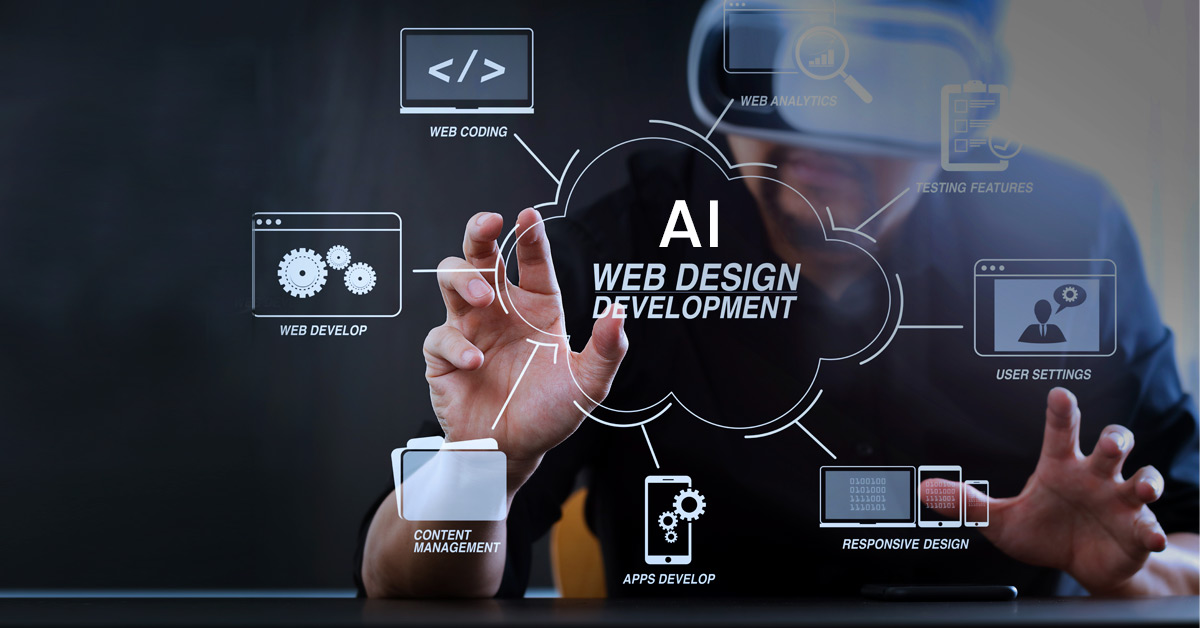Artificial Intelligence is no longer a futuristic concept—it's revolutionizing how we build and interact with web applications today. From automated code generation to intelligent user experiences, AI is becoming an essential tool in every developer's toolkit.
In this comprehensive exploration, we'll examine how AI technologies like GPT-4, GitHub Copilot, and other machine learning tools are transforming the web development landscape. We'll also discuss what skills developers need to cultivate to stay relevant in this rapidly evolving field.
The Current State of AI in Web Development
AI has already made significant inroads into web development. Tools like GitHub Copilot use OpenAI's Codex to suggest whole lines or blocks of code as developers type. This isn't just autocomplete—it's context-aware code generation that understands the intent behind what you're building.
Beyond code generation, AI is being used for:
- Automated testing and bug detection
- Performance optimization
- Accessibility improvements
- Personalized user experiences
- Content generation and management
"AI won't replace developers, but developers who use AI will replace those who don't."
AI-Powered Code Generation
One of the most immediate impacts of AI on web development is in code generation. Let's look at a simple example of how AI can assist in creating React components:
// AI-generated React component example
import React, { useState } from 'react';
const UserDashboard = ({ user }) => {
const [activeTab, setActiveTab] = useState('profile');
const renderTabContent = () => {
switch(activeTab) {
case 'profile':
return <UserProfile user={user} />;
case 'settings':
return <UserSettings user={user} />;
case 'activity':
return <UserActivity user={user} />;
default:
return <UserProfile user={user} />;
}
};
return (
<div className="user-dashboard">
<div className="dashboard-tabs">
<button
className={activeTab === 'profile' ? 'active' : ''}
onClick={() => setActiveTab('profile')}
>
Profile
</button>
<button
className={activeTab === 'settings' ? 'active' : ''}
onClick={() => setActiveTab('settings')}
>
Settings
</button>
<button
className={activeTab === 'activity' ? 'active' : ''}
onClick={() => setActiveTab('activity')}
>
Activity
</button>
</div>
<div className="tab-content">
{renderTabContent()}
</div>
</div>
);
};
export default UserDashboard;
An AI assistant could generate this entire component structure based on a simple prompt like "Create a React dashboard component with tab navigation for user profile, settings, and activity."
Intelligent User Experiences
Beyond the code itself, AI is transforming how users interact with websites and applications. Machine learning algorithms can:
- Predict user behavior and preload content
- Personalize interfaces based on user preferences
- Provide intelligent search and recommendation systems
- Generate dynamic content based on user context
- Implement natural language interfaces
These capabilities allow for creating more engaging, efficient, and user-centric web experiences that adapt to individual users rather than offering one-size-fits-all solutions.
The Skills Developers Need for an AI-Driven Future
As AI becomes more integrated into web development, the skill set required of developers is evolving. While foundational programming knowledge remains essential, developers should also focus on:
1. Understanding AI Capabilities and Limitations
Developers need to understand what AI can and cannot do effectively. This includes knowing when AI-generated code needs human review, how to prompt AI tools effectively, and recognizing the limitations of current AI systems.
2. Data Literacy
AI systems are driven by data. Developers who understand how to structure, clean, and work with data will be better positioned to implement AI solutions effectively.
3. Ethics and Responsible AI
With great power comes great responsibility. Developers need to understand the ethical implications of AI, including bias in algorithms, privacy concerns, and the societal impact of automated systems.
4. Integration Skills
Knowing how to integrate AI APIs and services into web applications is becoming a valuable skill. This includes working with services from providers like OpenAI, Google Cloud AI, and AWS AI services.
Challenges and Considerations
While AI offers tremendous potential for web development, it also presents challenges:
- Quality control: AI-generated code may contain errors or security vulnerabilities
- Over-reliance: Developers might become too dependent on AI tools, potentially eroding fundamental skills
- Intellectual property: Questions around who owns AI-generated code
- Performance: Some AI integrations may impact application performance
These challenges highlight the continued importance of human oversight and expertise in the development process.
Looking Ahead: The Next 5 Years
The integration of AI into web development will only accelerate in the coming years. We can expect to see:
- More sophisticated AI assistants that understand complex project requirements
- AI-driven testing and debugging that can identify issues before they occur
- Automated accessibility compliance checking and fixes
- AI-generated entire application architectures based on high-level requirements
- More natural language interfaces for building and customizing web applications
These advancements will make web development more accessible while simultaneously raising the bar for what's possible to build.
Conclusion
AI is not a threat to web developers but rather a powerful ally that can enhance productivity, creativity, and capabilities. The developers who will thrive in this new landscape are those who embrace AI as a tool, understand its capabilities and limitations, and focus on developing the uniquely human skills of problem-solving, creativity, and ethical decision-making.
At Yukon Gold Exclusive, we're integrating AI education throughout our curriculum to ensure our graduates are prepared for the future of web development. The intersection of human expertise and artificial intelligence represents the next frontier in creating exceptional digital experiences.

